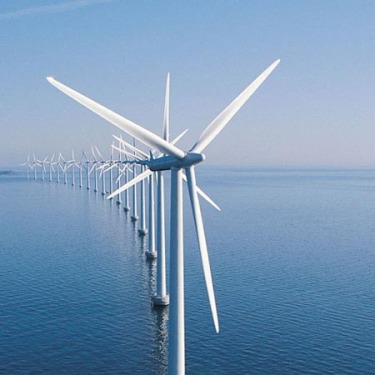 This is the new Minister of Finance Lou Jiwei's high-level forum for development in China. He stated that China’s energy prices are still too low, making the energy wasted more, or that there is not enough energy for energy conservation. It is important to let prices play an important role in making prices determine the preparation of resources, and to intervene in prices through the introduction of carbon taxes.
This is the new Minister of Finance Lou Jiwei's high-level forum for development in China. He stated that China’s energy prices are still too low, making the energy wasted more, or that there is not enough energy for energy conservation. It is important to let prices play an important role in making prices determine the preparation of resources, and to intervene in prices through the introduction of carbon taxes. In this forum, a report named “China in 2030: Building a Modern, Harmonious and Creative High-income Society†jointly issued by the Ministry of Finance, the Development Research Center of the State Council and the World Bank was released. It pointed out that the prices of energy, water, raw materials and natural resources in China are still distorted to varying degrees. They do not reflect negative externalities related to their use, nor do they reflect their true scarcity value. The result must be high resources in the production process. Consume intensity and corresponding waste and pollution. Today, the rapid growth in energy consumption has made China increasingly dependent on energy imports. In the past 10 years, the cost of China’s environmental degradation and resource depletion has approached 10% of GDP. At present, China is already one of the world’s largest energy users and carbon emitters. The per capita annual carbon dioxide emission has exceeded the world average. And it is still growing rapidly.
The report recommends that economic growth be freed from excessive reliance on resource use, carbon emissions and environmental damage, reduce the production and use of fossil fuels, and reduce air and water pollution. It is suggested that the government consider the use of market-based measures such as taxation, fees, emissions trading, land use indicators, and eco-labels.
“The most urgent thing is to ensure that the market prices of goods and services reflect the real costs that they create for society in the production process. For example, the prices of oil, water, coal and other natural resources should include tax.†The report is very clear .
The executive board of BASF Europe Inc.** Bocaci proposed in this forum that China must establish a market-based system to set a reasonable price for energy, carbon dioxide and other emissions, and at the same time carry out smart supervision on relevant standards. Effective implementation. He hopes that the relevant changes are not disruptive and destructive, but are gradually and gradually completed.
At the same time, various explicit or implicit subsidies have been abolished, pollution taxes have been raised, export tax rebates on high-pollution, high-emission, and resource-based products have been eliminated, and state-owned minerals that mining companies (whether state-owned or privately owned) should occupy. Resource payment has also become a topic of focus.
Using market measures to regulate energy product prices "The overall energy demand in the world will increase by 34% to 35% in 2035, and the proportion of traditional fossil energy in the energy composition is expected to decline by only 5%. China must guarantee future energy resources. To supply it at an affordable price, it is necessary to consider all aspects of the entire energy ecosystem and continue to intensify energy innovation and technological progress, said Chief Executive Officer of the Total Group Board of Directors, Ma Jierui.
Yang Hua, general manager of China National Offshore Oil Corporation, also believes that the rapid growth of energy demand and the severe challenges brought about by the global climate change are not the end of the traditional fossil energy, but instead rely on the strength of innovation, technological progress, and improve the efficiency of use. To build a sustainable energy supply chain, traditional fossil energy will surely be used more fully and efficiently.
Nicholas Stern, a professor at the London School of Economics and Political Science in the United Kingdom, suggested that China could gradually solve the problem of environmental pollution caused by energy consumption through tax reform.
He believes that carbon taxation will increase tax revenue, and the government can use these new tax burdens to carry out many public investment projects such as green, sustainable, and urbanization.
BASF Europe's executive board, Bokezi, introduced Europe's carbon emissions trading system (ETS). He believes that in addition to levying carbon taxes on companies, the government should also set up a reasonable incentive system, that is, a CO2 emission trading mechanism. Allowing carbon emission rights to be freely priced like commodities in the market operating mechanism will have a certain impact on the use of energy.
Rui Fusai, CEO of Royal Dutch Shell, added that now all countries in the world are interested in doing more work on carbon taxes and carbon emissions trading. They just have different concerns and systems. He suggested that a global system should be established. The formation of a unified pricing mechanism is conducive to the sound development of the global energy landscape.
Other Rubber Additives,Rubber Compound ,Chloroprene Rubber ,Synthetic Rubber
Rubber Auxiliary Agent Co., Ltd. , http://www.nbrubbers.com